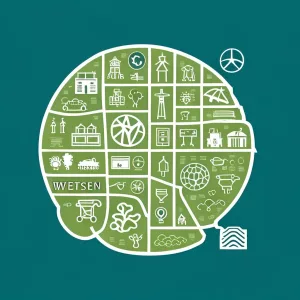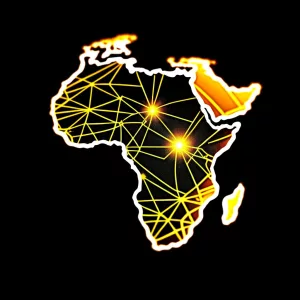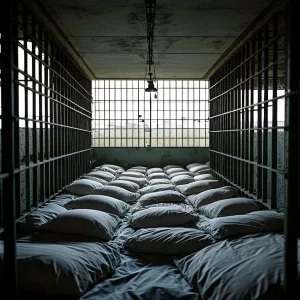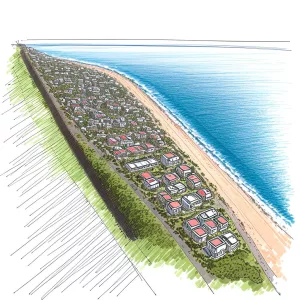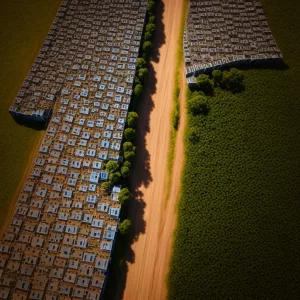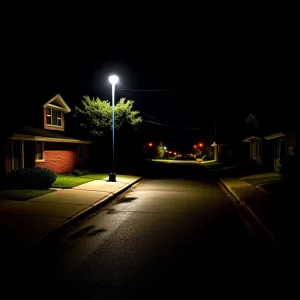Santos Beach Auto Extremo is a lively yearly car festival held on the beautiful shores of Mossel Bay, where over 200 rare and classic cars shine under the sun. It’s a special blend of stunning ocean views, friendly community spirit, and thrilling motoring history, from oldfashioned Ford Model Ts to sleek Ferraris. Visitors enjoy not just the cars but also fun events like a scenic road tour and a traditional fish braai, making it a joyful day for families and car lovers alike. This festival turns the beach into a vibrant celebration of heritage, horsepower, and friendship.
The Western Cape Investment Summit 2025 is a lively threeday event in Cape Town that brings together local and global investors to spark new jobs and growth. It shines a bright light on exciting sectors like technology, green energy, farming, manufacturing, and tourism. The summit is a chance for people with ideas and money to meet, team up, and build a stronger future for the region. With Cape Town’s stunning backdrop and a spirit of bold ambition, the event promises to turn big dreams into real opportunities for everyone.
TotalEnergies, South Africa, and the Power of Public Participation: Lessons from a Landmark Ruling
In early 2024, South Africa’s Western Cape High Court made a powerful decision to cancel TotalEnergies’ permit for offshore oil and gas exploration because the company failed to properly involve local communities and assess environmental risks. This ruling was a big win for coastal residents and environmental groups, showing that people’s voices matter when it comes to protecting nature and livelihoods. It also sent a clear message to energy companies: they must be honest, open, and careful about the risks if they want to operate near South Africa’s shores. This case is now a strong example of how public participation can shape a country’s energy future and defend the environment.
BoVine Wine and Grill House is a special place in Cape Town where great food meets local charm. With two beautiful spots one by the sunny beach in Camps Bay and another in a historic City Centre building it offers a warm, friendly vibe alongside delicious dishes like the famous Fiorentina steak. The team treats every guest like family, serving up meals paired with fine Cape Winelands wines. Whether watching a sunset or enjoying a lively city night, BoVine promises a cozy, memorable experience full of heart and flavor.
Cape Town’s Marimba Youth Orchestra made history by breaking the world record with 1,276 players more than twice the previous record! This joyful event brought young people together from South Africa and Zimbabwe, uniting them through the beautiful sounds of the marimba. Months of teamwork and practice turned a big challenge into a powerful celebration of African culture and friendship. When the music filled the arena, it felt like a sunrise of hope, showing how creativity and unity can shine bright together.
Powering the Future: South Africa’s Bold Leap Toward Private-Led Transmission Expansion
South Africa is making a bold move by inviting private companies to help build and expand its electricity grid, aiming to fix old problems and bring in more clean energy. With a huge plan to add 14,000 kilometers of new power lines and a special fund to protect investors, the country wants to make power more reliable and green. This fresh approach will create jobs, open new markets, and connect sunny and windy places to cities hungry for clean energy. It’s not just about electricity it’s about building a brighter, fairer future for all South Africans.
South Africa is facing a big challenge as the United States plans to add heavy taxes on key minerals like gold, diamonds, and manganese. This threat could cost jobs and money because the US is one of South Africa’s biggest buyers. While platinum metals are still safe for now, the country worries about losing important markets. South Africa is exploring new ways to grow its economy, like processing minerals locally and finding new buyers, hoping to turn this crisis into a chance to build a stronger future.
Bridging Borders: The Ubuntu Approach and Africa’s Cross-Border Infrastructure Renaissance
Africa’s bold push to build roads, railways, and power lines across borders is fueled by the spirit of ubuntu an idea that we succeed only by working together. Leaders like South Africa’s Dr. David Masondo are turning this vision into action, striving to connect nations through shared projects that boost trade and growth. Despite challenges from old borders and complex rules, examples like the Maputo Corridor show that cooperation can spark real progress. With fresh investments, strong partnerships, and a focus on sustainability, Africa is crafting a future where its people and places are linked, thriving as one united continent.
South Africa’s citrus industry is a lifeline for many rural communities, providing jobs and supporting local services through its vibrant orchards. But new U.S. import tariffs, jumping from 10% to 30%, threaten to make exporting fruit costly, risking delays, spoilage, and lost income. Farmers and workers worry that these trade rules could disrupt their way of life, while leaders plead for more time to negotiate fairer terms. This struggle shows how global trade decisions ripple far beyond borders, touching real people whose futures depend on every carton shipped.
Navigating South Africa’s Overcrowded Prisons: Law, Reality, and the Struggle for Change
South Africa’s prisons are bursting at the seams, mainly because many people wait too long for their trials and alternatives to jail aren’t used enough. Laws like Section 49G and 62F were made to protect detainees from long waits and offer supervised bail, but slow courts and scarce resources make these rules hard to follow. Inside overcrowded cells, people lose hope as they wait months or years just for a chance to be heard. Some small community efforts bring help and light, but real change needs more than laws—it needs the justice system and society to care deeply and act quickly.
Navigating a Landmark Week: South Africa’s Parliament at the Confluence of Local Action and Global Influence
In a busy week in July 2025, South Africa’s Parliament worked hard on important domestic issues like helping small businesses grow and fixing Eskom’s debt problems. At the same time, South Africa took the lead on the world stage by hosting the G20 and P20 summits, giving Africa a stronger voice in global decisions. Lawmakers also spent time meeting with their communities and carefully reviewing laws on land reform, education, and public infrastructure. This week showed South Africa’s strong commitment to democracy, balancing local needs with global influence and hope for a better future.
Unlocking Urban Potential: The Green Point Mixed-Use Development and Cape Town’s Evolving Atlantic Seaboard
The Green Point mixeduse development in Cape Town plans to turn a key piece of city land into a lively neighborhood with homes, shops, and public spaces. It aims to blend the old charm of the area with new, affordable housing and sustainable design, making room for everyone. The city is inviting local people to share their ideas, hoping to create a place that feels like home for all, while protecting history and the environment. This project is a chance for Cape Town to grow in a fair and fresh way, shaping the future of the Atlantic Seaboard together.
Oversight and Aspiration: Transforming Human Settlements in the Garden Route District Municipality
The Garden Route District faces big challenges like poor project delivery, not enough money, and weak infrastructure, all leftover from apartheid times. The goal is to build fair, mixed communities with better homes and services, using important grants and a smart plan called the Integrated Human Settlements Strategic Plan. Officials recently visited neighborhoods, seeing both progress and struggles, where people still live in makeshift shelters waiting for proper houses. The journey is tough, but with strong oversight, teamwork, and listening to communities, there’s hope to create safe, vibrant places for everyone to live with dignity.
Premier Lazarus Mokgosi envisions a bright future for the North West Province, focusing on creating jobs, growing the economy, and building a fair, honest government. He wants to bring people together—young and old, public and private sectors—to build new roads, schools, and smart cities that help everyone thrive. With big investments in mining, youth training, and social programs, Mokgosi aims to turn challenges like unemployment into real chances for success. His leadership shines with hope, aiming to build a province where everyone has a chance to grow and live well.
Netflix’s ScreenCraft Pathway is an exciting new program that helps young South African filmmakers and TV creators learn by doing. Through paid internships and close mentorship, it gives participants real experience in making movies and shows. This program boosts local stories, creates jobs, and builds a strong community of creative talent. By working with local film authorities, Netflix is helping to grow South Africa’s creative industry from the ground up. It’s a bright step toward a future where South African voices shine on screens everywhere.
Charlene Overmeyer was sadly taken and killed during a violent home invasion in Lavender, Cape Town. The police worked hard and caught three suspects, with Charles Williams found guilty and given 23 years in prison. This tragic event shows how South Africa continues to fight against crime and tries to bring justice through strong police work and courts. Though the community is hurt, they come together to remember Charlene and find hope for a safer future.


